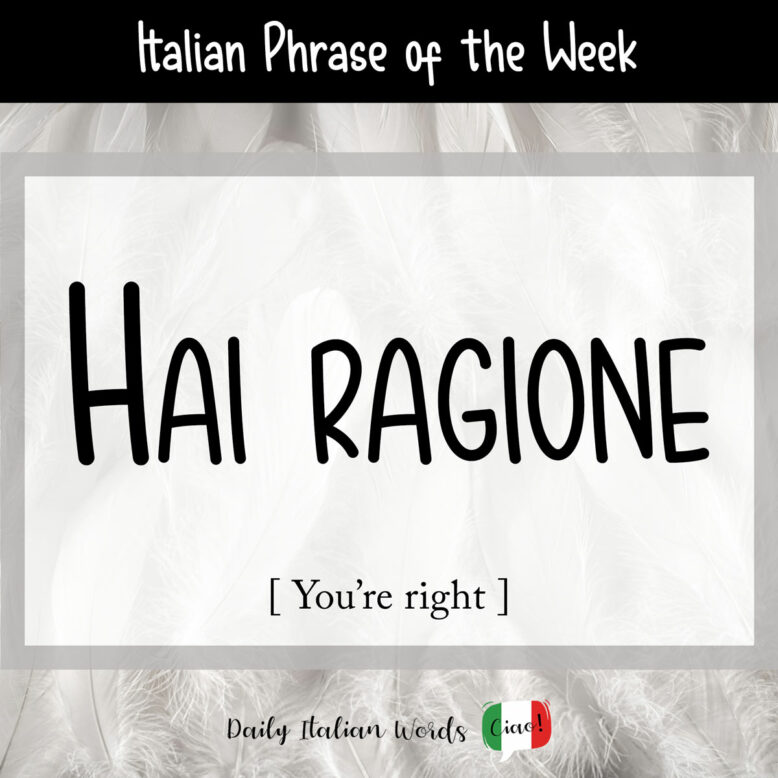If you want to tell someone that the answer they have given is correct in Italian, you can use the phrase Hai ragione.

Let’s take a quick look at how this phrase is formed:
hai
is the second-person singular form of the verb avere (to have). It literally means you have. The pronoun tu (you) can be omitted because the conjugation of the verb and the context are enough to identify the subject.
If you are talking to someone in a formal situation, it is best to replace hai with ha, which is the second-person formal form (in addition to being the third-person singular form).
When addressing more than one person, you must use the second-person plural form avete.
ragione
actually means reason, motive or explanation. For example:
>> Non capisco le ragioni di questa lite. = I don’t understand the reason for this fight.
When paired with avere (to have) in its singular form, it assumes the meaning of right or correct.
Hai ragione, Parigi non è la capitale d’Italia.
You’re right, Paris is not the capital of Italy.

Adding extra emphasis to this phrase is easy. All you have to do is insert any one of the following adverbs:
- Hai pienamente ragione! (pienamente = fully, completely, wholly)
- Hai assolutamente ragione! (assolutamente = absolutely)
- Hai completamente ragione! (completamente = completely)
- Hai proprio ragione! (proprio = exactly, truly, precisely)
If you want to say you might be right or I guess you’re right, you can use the indirect object pronoun mi and the third-person singular of the verb sapere, which is sa, to form the phrase Mi sa che hai ragione.
Mi sa che hai ragione, Londra non è una città francese.
I guess you’re right, London is not a French city.
Torto is the antonym of ragione in this case, and you can use it in the negative to say that someone might be right in the end.
Non hai tutti i torti: sono un po’ ignorante in geografia. – Solo un po’!?
You’re not entirely wrong: I’m somewhat ignorant when it comes to geography. – Only somewhat!?

Heather Broster is a graduate with honours in linguistics from the University of Western Ontario. She is an aspiring polyglot, proficient in English and Italian, as well as Japanese, Welsh, and French to varying degrees of fluency. Originally from Toronto, Heather has resided in various countries, notably Italy for a period of six years. Her primary focus lies in the fields of language acquisition, education, and bilingual instruction.


